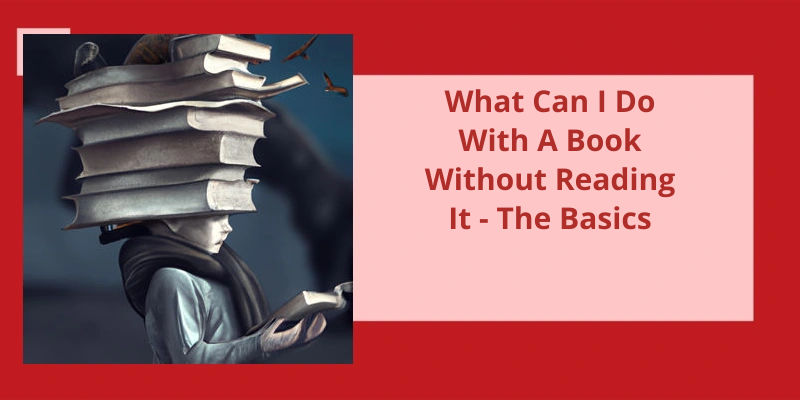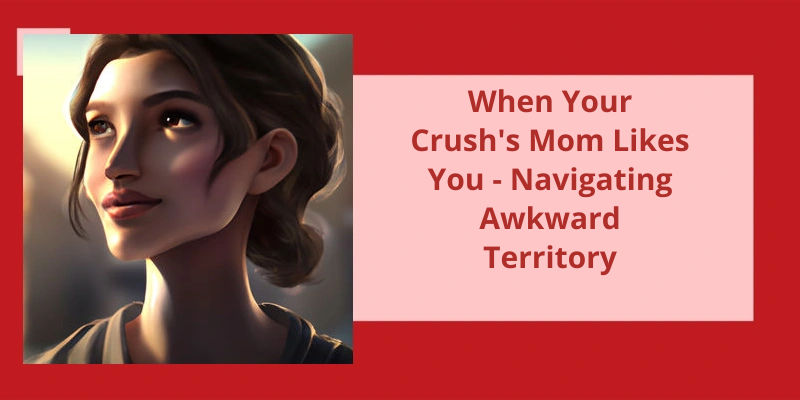In today's digital age, where information is readily accessible at the click of a button, it may seem counterintuitive to consider the possibilities that lie within a book without actually reading it. However, the truth is that a book holds much more than just it’s text. From it’s tactile experience to it’s aesthetic value, a book can ignite the imagination and offer a plethora of opportunities for exploration and creativity. Whether you’re an avid reader or simply curious about the potential of a book, this article will delve into the basic ways in which you can engage with a book without necessarily reading it. So, let's embark on a journey of discovery, where the words on the pages become mere companions in a world of endless possibilities.
What Is the Best Thing to Do With Books?
Another great option is to host a book swap party with friends and family. This way, everyone can bring books they no longer want and exchange them with others. It’s a fun way to discover new titles and give your unwanted books a second chance with someone who’ll appreciate them. Plus, you might end up with a new favorite book yourself!
If youre feeling creative, you can repurpose old books into unique and decorative objects. For example, you can transform them into stylish bookends, wall art, or even a personalized journal by adding your own artwork and writings. This not only gives the books a new purpose but also adds a personal touch to your home decor.
Another option is to sell your unwanted books at a local second-hand bookstore or online marketplace. You can make some extra money and declutter your bookshelf at the same time. Just be sure to research the value of the books beforehand to ensure youre getting a fair price.
If youre feeling philanthropic, consider donating your books to a prison or a local shelter. Many correctional facilities have libraries or reading programs that rely on book donations to provide inmates with educational and recreational materials. Similarly, homeless shelters or transitional housing facilities often appreciate book donations to give their residents something to read and enjoy during their stay.
Lastly, you can always regift your books to friends or family members who might enjoy them. Think about their interests and hobbies, and choose books that align with their preferences. It’s a thoughtful gesture that not only helps you declutter but also brings joy to someone elses life.
Remember, even if a book doesn’t fit your personal preferences, it can still bring joy and knowledge to someone else. So, instead of letting them collect dust on your bookshelf, consider these alternatives and give your books a new lease on life.
Upcycling Books Into Literary Art Pieces or Sculptures
- Create a book sculpture by folding the pages into intricate designs
- Turn old book covers into unique art pieces by painting or collage techniques
- Transform pages of a book into beautiful paper flowers or butterflies
- Construct a bookshelf using stacked books with decorative designs
- Repurpose book spines to create a decorative wall art installation
- Create bookmarks with dried flowers pressed between book pages
- Use book pages to create origami art or paper quilling designs
- Design unique lampshades using pages from old books
- Create personalized journals using recycled book covers and pages
- Construct a book-themed collage by cutting out words and images from old books
When it comes to consuming a book without actually reading it cover to cover, there are several alternative methods that can help you absorb it’s content. First, familiarize yourself with the conversation surrounding the author and the book. Dive into interviews, articles, and discussions that shed light on the main ideas and themes. Additionally, consider watching TV shows or movies that are based on or inspired by the book, as they can offer a condensed version of the story. Another effective approach is to explore the author’s other works or related writings to gain insight into their ideas and writing style. If you’re up for a creative experience, try experimenting with different formats such as audiobooks or graphic adaptations. Lastly, joining a book club can offer valuable discussions and interpretations, enhancing your understanding of the book’s content. By utilizing these methods, you can effectively learn from a book without having to read it conventionally.
How Can I Learn Everything in a Book Without Reading It?
Learning everything in a book without actually reading it may seem like a daunting task, but there are several effective ways to consume a book without sitting down and flipping through the pages. One of the best approaches is to know the conversation around the author. By reading reviews, interviews, and articles about the author and their work, you can gain insight into the key themes and ideas discussed in the book. You can also learn about the authors writing style and the impact their work has had on readers and critics alike.
Another way to absorb the content of a book without reading it’s by watching TV shows or movies that are based on the book. This can be especially beneficial for visual learners, as it allows you to experience the story and it’s messages in a different format. Not only will you get a sense of the plot, but you can also pick up on important themes and character development that are central to the book.
By doing so, you can familiarize yourself with the authors key arguments, supporting evidence, and main takeaways without having to read every page.
For a more unconventional approach, try “literally consuming” the book by exploring visual representations of the content. For example, some books have been transformed into graphic novels or have illustrations that depict key scenes or concepts. By immersing yourself in these visual interpretations, you can capture the essence of the books content without the need to read the text.
Finally, joining a book club can be a great way to gain knowledge about a particular book without reading it cover to cover. At book club meetings or discussions, you can engage in conversations about the book, ask questions, and receive insights from others who’ve read it. By participating in these conversations, you can learn about the books themes, plot, and ideas, allowing you to grasp it’s essence without actually reading it yourself.
Source: Does anyone learn without reading books?
However, it’s important to note that not liking to read books doesn’t make you any less intelligent or knowledgeable. There are various ways to gain information and engage in learning activities that may suit your interests and learning style better.
Is It OK if I Don’t Like Reading Books?
Is it OK if I don’t like reading books? Although reading is an activity most people do on a daily basis, some people don’t enjoy it. If you don’t enjoy reading, don’t feel bad: you arent alone. In fact, the number of people who don’t read books has tripled since 1978, and about a quarter of American adults haven’t read a book in the past year.
Not being a fan of reading doesn’t make you any less intelligent or cultured. There are many ways to gain knowledge, learn new things, and expand your horizons without reading books. You can explore alternative forms of media, such as audiobooks, podcasts, documentaries, or even visual mediums like movies and TV shows.
Engaging in hobbies that interest you can also be a great way to learn and grow without relying on books. Whether it’s through hands-on activities like cooking, woodworking, or painting, or by immersing yourself in cultural experiences like visiting museums or attending concerts, there are countless ways to broaden your knowledge and engage your mind.
Additionally, interacting with others can be a valuable source of learning and intellectual stimulation. Engage in discussions with friends, join social or professional groups, or participate in online forums to exchange ideas, share experiences, and challenge your perspectives. The power of conversation and human connection shouldn’t be underestimated when it comes to personal growth and learning.
Ultimately, what matters most is finding a way to constantly seek knowledge and stimulate your mind, regardless of whether it involves reading books. The world is full of opportunities for growth and learning, and the important thing is to find what works best for you. As long as you’re actively engaging with the world and pursuing personal growth, it’s perfectly fine if reading books isnt your preferred method.
Determining whether to keep books you’ve already read can be a personal decision, influenced by various factors such as enjoyment, potential re-read value, and sentimental attachment. While getting rid of books that didn’t captivate you might seem reasonable, it’s equally valid to hold onto beloved reads, those you foresee revisiting, or books that hold sentimental value. Ultimately, the choice to keep or let go of books rests on your preferences and the significance you associate with them.
Should You Keep Books You’ve Already Read?
When it comes to deciding whether or not to keep books youve already read, there are a few factors to consider. Firstly, if it isnt a book that you enjoyed or think that you’re going to read again, then it may be a good idea to let it go. After all, why clutter your shelves with books that don’t bring you joy or serve a purpose in your life? In these cases, you might consider donating them to a library or selling them to a second-hand bookstore.
On the other hand, if you enjoyed the book and think that you might want to revisit it in the future, keeping it can be a wise decision. Books have a unique ability to transport us back in time and remind us of the emotions and experiences we’d when we first read them. They can also be a cherished part of our personal history, with certain titles holding sentimental value or triggering nostalgic memories. In these instances, keeping books can provide comfort and a sense of connection to our past selves.
Furthermore, even if you don’t plan to reread a book, there might be other reasons to keep it. Perhaps the book holds valuable information or serves as a reference guide for a specific topic. It may be worth hanging onto for future reference or research purposes. Additionally, some individuals simply enjoy having a well-curated book collection that reflects their interests and passions. Just the sight of a shelf filled with books can bring a sense of pride and accomplishment.
Another method for reading a book with unfamiliar words is to employ various strategies to decipher their meaning. This involves analyzing the context, breaking down the word’s components, and making logical inferences. By employing these techniques, readers can enhance their vocabulary and comprehension skills, leading to a more rewarding reading experience overall.
How Do You Read a Book With Words You Don’t Know?
When faced with a book filled with unfamiliar words, one approach is to immerse oneself in the text and strive to comprehend the unknown terms through contextual clues. This method can prove effective depending on the nature of the material and the placement of the unfamiliar words therein. Engaging in extensive reading while actively seeking meaning from the surrounding context offers the opportunity to gradually decipher and assimilate the unfamiliar vocabulary.
Maintaining an organized system of note-taking while exploring a book replete with unfamiliar vocabulary is another valuable technique. Jotting down definitions, synonyms, or even brief explanations of unknown words can serve as a useful reference point for future reading sessions. This method not only aids in immediate comprehension but also fosters long-term retention of newly acquired vocabulary.
In addition to relying on dictionaries and note-taking, seeking out additional resources can enrich the reading experience when encountering unfamiliar words. Consultation of supplementary materials, such as online resources, language forums, or even language-learning apps, can offer further insights into the meaning and usage of unknown terms. Engaging with various resources ensures a well-rounded approach to vocabulary acquisition and boosts overall comprehension of the book at hand.
Lastly, it’s worth mentioning the importance of maintaining a consistent reading habit to develop and expand ones vocabulary. Regularly exposing oneself to diverse texts, genres, and authors broadens linguistic horizons and familiarizes readers with a wide array of vocabulary. Through perseverance and determination, the process of reading books with unfamiliar words can gradually become more comfortable and enjoyable, ultimately leading to a higher level of proficiency and literacy.
Books play a crucial role in our lives, serving multiple purposes that extend beyond entertainment. They act as our trusted companions, unleashing the power of our imagination and expanding our perspective of the world. Not only do they foster personal growth, but they also boost our confidence, enrich our vocabulary, and facilitate language learning. The importance of books can’t be overstated, as they serve as gateways to knowledge, enlightenment, and self-discovery.
What Are the Main Uses of Books?
Books have long been a cornerstone of human civilization, serving various purposes that extend beyond simply reading the words on their pages. From ancient scrolls to modern novels, books have proven to be essential tools in our personal and intellectual development.
One of the main uses of books is their ability to provide knowledge and information. Whether it’s a non-fiction book that explores a specific area of study or a historical novel that immerses us in another time period, books are a rich source of facts, ideas, and perspectives that can broaden our understanding of the world.
Books are also crucial in honing our imagination and creativity. Through the power of descriptive language and storytelling, books transport us to different worlds, allowing us to visualize characters, places, and situations.
Furthermore, books play a vital role in shaping our unique perspective of the world around us. Every book we read introduces us to different cultures, ideologies, and ways of life. This exposure helps us develop empathy, tolerance, and appreciation for diversity. By presenting various viewpoints and narratives, books encourage us to think critically and form our own opinions.
Moreover, books have a profound impact on our personal development. By delving into the experiences and emotions of the characters we encounter, books help us navigate our own lives. They serve as companions during difficult times, providing solace and understanding. Books can also inspire us to overcome challenges, develop resilience, and foster personal growth.
In addition, books are an invaluable resource for improving language skills. Reading widely exposes us to different writing styles, enhancing our vocabulary and grammar. Moreover, books can serve as a language learning tool, allowing us to immerse ourselves in a foreign language and practice comprehension and fluency.
Ultimately, books are more than just literary objects – they’re gateways to knowledge, creativity, personal growth, and connection. They’ve the power to captivate our minds, inspire our souls, and shape our outlook on life. So even if you don’t have the time or inclination to read a book from cover to cover, remember that it’s mere presence in your life can have a profound impact.
Books as a Form of Entertainment: Discuss the Role of Books in Providing Entertainment and Escapism Through Fiction, Poetry, and Other Genres.
Books have long been a source of entertainment and escapism for people of all ages. Through works of fiction, readers can immerse themselves in different worlds, explore new perspectives, and meet intriguing characters. Whether it’s a thrilling mystery, a captivating romance, or a thought-provoking sci-fi adventure, books offer a wide range of genres to suit every taste.
Poetry, on the other hand, provides a unique form of entertainment through it’s lyrical and expressive language. It can evoke emotions, paint vivid imagery, and convey profound ideas in just a few lines. Poetry allows readers to appreciate the beauty of words and experience a different kind of storytelling.
Aside from fiction and poetry, books also cover a vast array of topics that can pique readers’ curiosity and provide them with knowledge and entertainment simultaneously. From travel guides to cookbooks, self-help books to art albums, there’s virtually no limit to the subjects that books can explore.
Furthermore, books serve as a valuable means of escapism, allowing readers to temporarily escape the stresses of everyday life. Immersing oneself in a compelling story or poem can transport the mind to extraordinary places, fostering relaxation, creativity, and a much-needed break from reality.
So, while reading may be the most obvious way to enjoy a book, there are many other ways to engage with and be entertained by the written word. Books aren’t only a gateway to knowledge but a fantastic source of entertainment and a wellspring of imagination.
Conclusion
Whether it be for aesthetic purposes, decor, or even as a means of inspiration, the possibilities are endless. By incorporating books into our lives in different ways, we can appreciate their value beyond the written word. From creating a captivating bookshelf display to using books as art or design elements, we can explore the creative potential that lies within these literary treasures. So, next time you come across a book that catches your eye, consider how you can utilize it in ways that go beyond reading, and unlock a whole new realm of possibilities.






